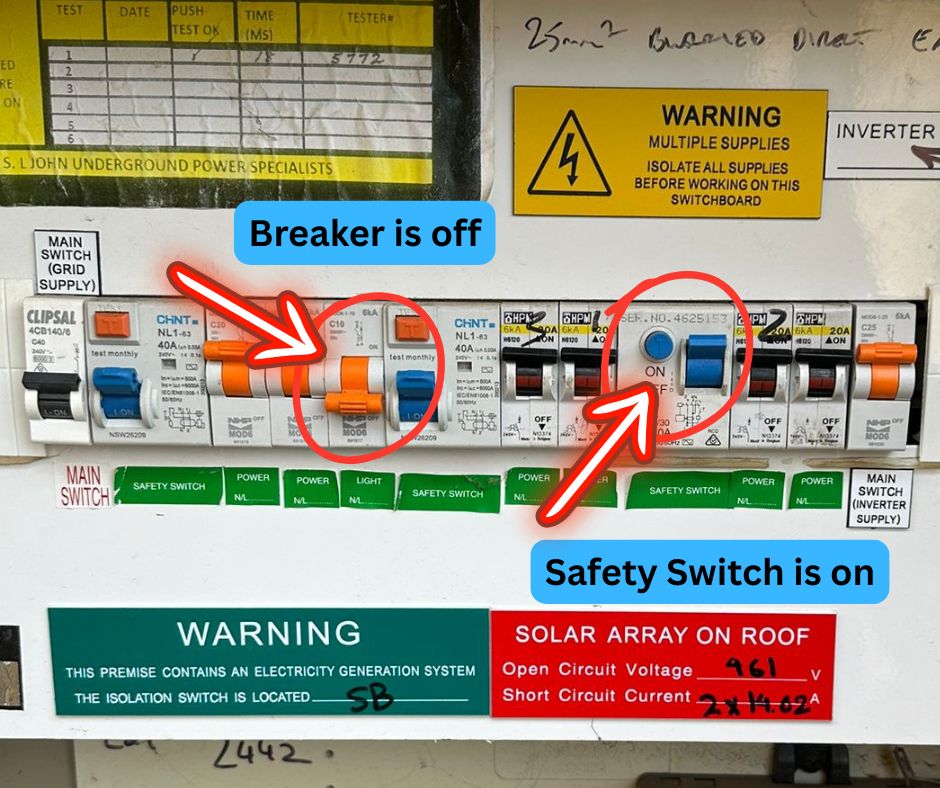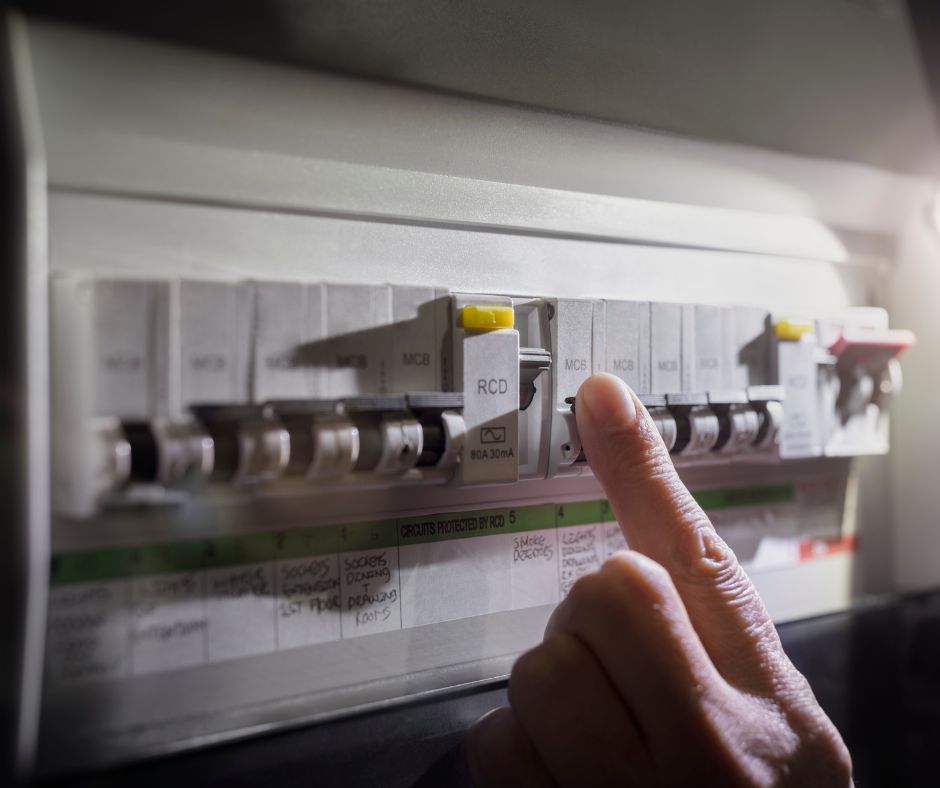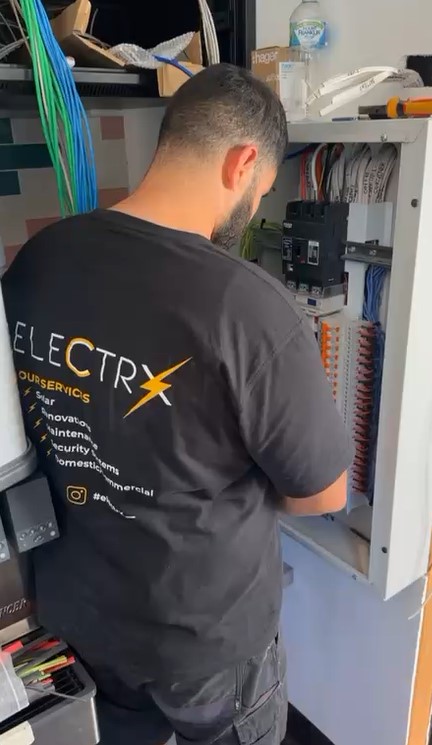Discover the Critical Reasons for Frequent Circuit Breaker Tripping in Your Home
Encountering frequent circuit breaker tripping is not merely an inconvenience; rather, it serves as a vital safety measure designed to shield your home from potentially hazardous electrical faults. This recurring issue can arise from a multitude of common culprits, such as overloaded circuits, short circuits, malfunctioning appliances, or hidden wiring issues. If you notice that the breaker consistently trips, it is paramount to investigate the underlying cause and engage a qualified electrician to carry out the necessary repairs. This ensures that your home's safety and functionality are effectively restored, allowing you to enjoy peace of mind.

Your Comprehensive Guide to Diagnosing Circuit Breaker Tripping Causes
When your circuit breaker shuts off immediately after being reset, it signals a serious issue within your electrical system. The breaker is fulfilling its purpose by disconnecting power to prevent potential hazards or more severe complications. Addressing these concerns swiftly can help maintain the safety of your electrical system and avoid further issues down the line.
Homeowners in Werribee, Altona, and Point Cook frequently reach out to us with queries regarding this troubling issue. Although it can be bothersome, this situation is often an early warning sign of more serious electrical problems that could escalate if left unresolved. It is crucial to take these warnings seriously to ensure the ongoing safety of your home.
This article aims to explore the various underlying causes of circuit breaker complications thoroughly, provide you with actionable troubleshooting steps, and illustrate how Electrx can effectively tackle these electrical challenges, ensuring your home remains a safe haven.
Understanding the Mechanisms of Circuit Breakers in Protecting Your Home
Circuit breakers function as automatic safety devices that protect your home by interrupting power under specific conditions, including:
- When excessive current flows through a circuit, resulting in an overload situation that can cause damage.
- In the occurrence of short circuits that may lead to dangerous electrical faults.
- When there is a power leak to the ground, indicating an earth fault that poses a significant safety risk.
- If the breaker itself is faulty or nearing the end of its operational lifespan, requiring immediate attention.
Unlike traditional fuses, circuit breakers respond more swiftly to potential threats, providing a superior safety mechanism that does not rely on melting wires to stop the current flow. This rapid response improves the safety of your environment, ensuring a safer home for you and your family, thereby enhancing overall household safety.
Uncovering Why Your Circuit Breaker Won't Stay Reset
If you find yourself repeatedly resetting the breaker only for it to trip again almost immediately, this is a clear indication that an active fault exists on that specific circuit. Understanding the most common causes can significantly aid you in effectively diagnosing the issue, allowing for quicker resolutions.
The primary concerns that often lead to this frustrating situation include:
Understanding Overloaded Circuits: A Common Electrical Challenge
Overloaded circuits represent a prevalent electrical issue, particularly when multiple high-draw devices, such as kettles, toasters, or heaters, are used simultaneously on the same circuit. The cumulative load can easily exceed the safe capacity, prompting the circuit breaker to trip as a protective measure against overheating and potential fire hazards. This safety feature is crucial for safeguarding your home from catastrophic electrical fires.
Identifying Whether Faulty Appliances Are the Culprit
In numerous instances, the source of the problem may be linked to the devices connected to the circuit rather than the wiring itself. Appliances such as heaters, older refrigerators, and dryers can frequently be the culprits; internal faults in these devices can lead to short circuits or current leakage, causing the breaker to trip unexpectedly. It’s essential to investigate and test these appliances to ascertain their functionality.
Grasping the Dangers of Short Circuits and Their Causes
Short circuits occur when damaged wiring, rodent infestations, or crushed insulation allow live wires to come into contact with the earth or neutral wires directly. This dangerous condition can trigger the circuit breaker to trip rapidly, thus preventing potentially hazardous outcomes that could threaten both your property and personal safety. Recognising these signs early can prevent more severe damage.
The Importance of Recognising Earth Leakage and Its Implications
Moisture infiltration in outdoor outlets, garden lighting setups, or under-house cabling can create conditions conducive to current leakage into the ground. This scenario may cause Residual Current Devices (RCDs) to trip as a precautionary measure, ensuring the safety of your electrical system and averting potentially perilous situations that could pose risks to your home and family.

Practical Steps to Take When Your Circuit Breaker Trips
- Unplug all devices connected to the outlets on the affected circuit to eliminate any potential source of overload, ensuring that you can troubleshoot effectively.
- Reset the circuit breaker by flipping it back to the ‘on' position, making sure it is functioning as intended.
- If the breaker remains active, begin plugging your devices back in one at a time to identify the source of the problem. This methodical approach will help isolate the issue.
- When the breaker trips again, you will have pinpointed the faulty device that requires further inspection or replacement to prevent future occurrences.
- If the breaker continues to trip even with no devices connected, it is time to reach out to our team for professional assistance, as further investigation is warranted.
Utilise our Fault Finding Service to receive a thorough and timely diagnosis of your electrical issues, ensuring your safety and peace of mind while addressing potential hazards efficiently.
Understanding When to Stop Resetting Your Circuit Breaker
If your circuit breaker regularly trips or fails to reset at all, you should take the following precautions to avoid exacerbating the problem:
- Do not keep resetting the breaker—this action can place excessive stress on the entire electrical system, leading to further complications and safety risks.
- Avoid swapping breakers between different circuits, as this practice may cause additional issues and create unsafe conditions.
- Do not attempt to replace the breaker yourself—this is not only against the law but also poses significant safety risks to you and your home, potentially leading to severe consequences.
We have witnessed numerous instances where DIY resets have led to damaged boards or even house fires. Trust our experienced professionals to safely and effectively trace the underlying issue and provide a reliable solution tailored to your specific needs.
What to Expect When Electrx Resolves Your Circuit Breaker Issues
When our dedicated team at Electrx responds to a reported circuit breaker fault, we conduct a comprehensive assessment that includes:
- Testing the circuit using specialised clamp meters and insulation testers to ensure safety and reliability throughout the system.
- Inspecting all outlets, fittings, and switchboard connections for any signs of irregularities or wear that could compromise safety.
- Examining appliances that may be contributing to the fault for potential internal issues that require resolution.
- Replacing the circuit breaker or RCD if we determine it has failed during our assessment, ensuring optimal performance.
- Repairing any damaged cabling or terminals that pose a safety risk to your electrical system, thereby safeguarding your home.
- Issuing a Certificate of Electrical Safety upon the successful completion of our work, ensuring compliance with safety standards and regulations.
If your switchboard is outdated or lacks sufficient safety switches, we may also recommend a Switchboard Upgrade to enhance safety standards and effectively protect your home from electrical hazards.
Understanding the Expected Lifespan of Circuit Breakers and Signs of Impending Failure
Indeed, circuit breakers, like all mechanical devices, possess a finite lifespan. If your breaker is tripping excessively or does not reset smoothly, it may indicate a fault that requires immediate attention to prevent further damage.
Signs that your circuit breaker may be nearing failure include:
- Feeling hot or loose to the touch, indicating potential overheating that could lead to failure.
- Tripping without any apparent cause, suggesting underlying issues that need investigation.
- Requiring significant effort to reset, a clear sign of malfunction that should not be ignored.
- Flipping even when there is no load connected, pointing to possible internal faults that require professional evaluation.
We maintain a selection of modern, compliant replacements readily available and can promptly replace faulty breakers to ensure the safety and reliability of your electrical system, giving you peace of mind.

Your Queries Addressed: Circuit Breaker Frequently Asked Questions
Can I legally replace my circuit breaker myself?
No, according to Victorian law, only a licensed electrician is authorised to safely and legally replace circuit breakers in residential settings, ensuring compliance with safety regulations.
Why does my circuit breaker trip when I operate the heater?
Heaters typically draw a significant amount of current. If they share a circuit with other high-power devices, this can lead to an overload situation, causing the breaker to trip as a protective measure against potential hazards.
Can a faulty outlet cause my circuit breaker to trip?
Yes, damaged or melted outlets can short internally, leading to the breaker tripping each time the circuit is energised, which can create hazardous conditions that require urgent attention.
Is this a situation that requires immediate attention?
Absolutely, especially if the breaker fails to reset, affects critical appliances, or shows signs of burning or overheating that could pose serious risks to safety and property.
Vital Insights on Circuit Breaker Issues and Their Effective Solutions
When circuit breakers trip, it is essential to recognise that they do so for specific reasons. If your breaker fails to remain reset, it is crucial not to overlook this warning, as the underlying problem could reside within your wiring, appliances, or the switchboard. Electrx is well-equipped to swiftly identify and address these concerns, ensuring your home remains a safe environment.
We will handle all necessary repairs to guarantee your system operates safely and reliably, maintaining its dependable performance for your peace of mind.
Contact us for expert assistance with Melbourne Switchboards and all your electrical needs, ensuring your home remains safe and functional.
Circuit Breaker Keeps Tripping or Won’t Stay Up? Here’s What It Means
The Article: Circuit Breaker Tripping? Discover What It Means first appeared on https://writebuff.com
The Article Circuit Breaker Tripping Explained: What You Need to Know Was Found On https://limitsofstrategy.com
The Article Circuit Breaker Tripping: Essential Insights You Should Know found first on https://electroquench.com


